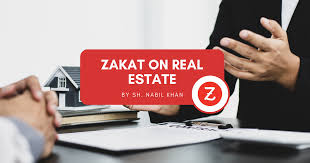
Zakat on Corporate Landowners: The UAE’s real estate market in 2025 is a global investment hub, with AED 893 billion ($243 billion) in 2024 transactions and 7-11% rental yields. For Muslim-owned corporate landowners, Zakat—an Islamic obligation and one of the five pillars of Islam—imposes a 2.5% annual levy on wealth exceeding the Nisab threshold (87.48 grams of gold or equivalent, ~AED 25,000/$6,800 in 2025).
While the UAE’s 9% corporate tax (effective June 2023) applies to net profits, Zakat targets specific assets or income based on intent and use, impacting corporate landowners in areas like Dubai, Abu Dhabi, and Ras Al Khaimah. Below are seven key impacts of Zakat on corporate landowners, tailored for American Muslim investors navigating this tax-free personal income market.
For corporate landowners leasing properties (e.g., apartments in Dubai Marina), Zakat is due on net rental income after expenses (maintenance, property taxes, non-interest mortgage portions) if it exceeds Nisab and is held for one lunar year. The property’s value is exempt unless intended for trade. For example, a company earning AED 1 million ($272,000) in net rent from Al Marjan Island units pays AED 25,000 in Zakat (2.5%), preserving 8-10% yields. This focus on income reduces Zakat’s impact compared to taxing asset value.
Properties held by corporations for trading purposes (e.g., off-plan units in Dubai South) are subject to Zakat at 2.5% of their market value annually, assessed on the Zakat anniversary. A company holding AED 10 million ($2.72 million) in resale properties owes AED 250,000 in Zakat, impacting cash flow. Accurate annual valuations are critical to avoid over- or underpayment, and Zakat can be deferred until sale, based on historical values. This encourages careful intent documentation to distinguish trade from investment properties.

Land or buildings held without intent to sell, such as corporate offices in Abu Dhabi’s ADGM or long-term investments in Al Hamra Village, are exempt from Zakat, regardless of value. For instance, a company owning AED 50 million ($13.6 million) in non-trading land incurs no Zakat unless it generates rental income. This exemption incentivizes long-term holding strategies, aligning with UAE’s freehold ownership appeal and 10-15% appreciation in areas like Saadiyat Island.
Corporate landowners can deduct up to one lunar year’s non-interest portion of mortgage payments from Zakat calculations if repayment ability is significantly impacted. For a AED 5 million ($1.36 million) property in Yas Island with AED 200,000 in annual principal repayments, this deduction reduces Zakatable income, saving AED 5,000 in Zakat. Islamic finance plans are non-deductible, as they are not considered debt, requiring careful financing choices to optimize Zakat liability.

Zakat’s 2.5% levy on rental income or trade properties strains cash reserves, particularly for firms with high-value portfolios in JVC or Al Reem Island. A company with AED 20 million ($5.45 million) in Zakatable assets faces AED 500,000 in Zakat annually, necessitating robust liquidity planning. Unlike corporate tax, which allows expense deductions, Zakat’s asset-based approach requires proactive financial structuring to maintain 7-9% net yields, especially with AML compliance costs rising in 2025.
Zakat’s rules, based on the intent of property ownership, push corporate landowners to clarify whether properties are for trade, rental, or long-term investment. For example, a Sharjah-based firm holding Aljada plots for resale pays Zakat on their value, while shifting to rental intent taxes only income, reducing liability. This encourages strategic planning, with 45% of 2025 Dubai buyers (many foreign, including Americans) favoring rental-focused investments to minimize Zakat exposure while leveraging Golden Visas (AED 2 million).
Buildings, machinery, or land used for business operations (e.g., a developer’s headquarters in Dubai South) are exempt from Zakat, as they are not income-generating or trade assets. A company with AED 15 million ($4.09 million) in operational assets avoids Zakat entirely, enhancing profitability compared to corporate tax’s broader scope. This exemption supports reinvestment in high-growth areas like Ras Al Khaimah, projecting 5-8% price growth, and aligns with UAE’s tax-free personal income appeal.
Zakat’s targeted approach complements UAE’s 7-11% yields, outpacing global markets like London (2.4%). Freehold ownership, no personal income tax, and visa programs (2-year Investor Visa for AED 750,000, Golden Visa for AED 2 million) drive demand. Strategic intent and deductions minimize Zakat’s impact, preserving returns in a market where 45% of Dubai’s 2025 buyers are foreign. Proximity to Dubai International Airport (20-45 minutes) and U.S.-UAE tax treaties add value.
Zakat requires diligent record-keeping and annual valuations, with non-compliance risking spiritual and social consequences, though not legally enforced in the UAE. The 9% corporate tax and 15% DMTT for MNEs add complexity, while a potential 10-15% market correction in 2026 due to oversupply (41,000 Dubai units) demands caution. Consulting Islamic scholars and RERA-registered agents ensures accurate Zakat calculations and FTA compliance for corporate tax filings.
Zakat impacts corporate landowners through rental income taxation, resale property obligations, exemptions for non-trading assets, mortgage deductions, cash flow demands, investment intent, and operational asset relief. These factors enable American Muslim investors to optimize 7-11% returns in UAE’s 2025 real estate market while fulfilling Islamic obligations. Strategic planning and expert guidance ensure Zakat compliance, enhancing profitability in Dubai, Abu Dhabi, and Ras Al Khaimah. Zakat on Corporate Landowners
read more: Tax Benefits for UAE Properties Supporting Green Building Compliance in 2025
